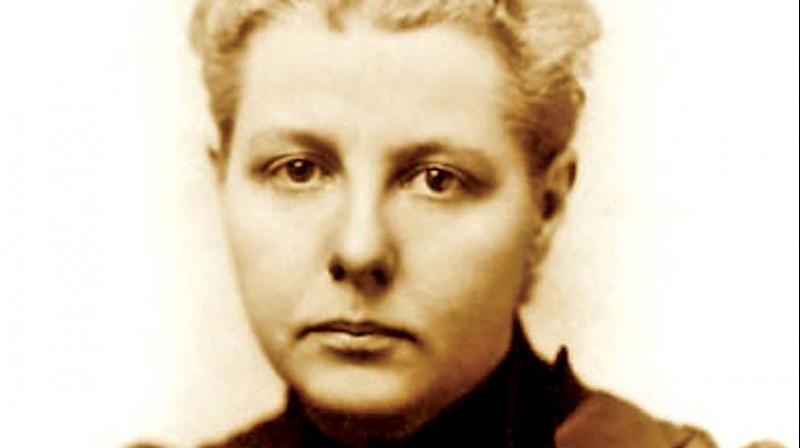Annie Besant: Theosophist who inspired Indian nationalism
And this year, as we celebrate the 70th anniversary of Indian Independence, it will be special for another reason too.;

Chennai: If Chennai still has a flourishing address in Besant Nagar, for all the renaming of is places and roads after Justice Party stalwarts, it is history's unmatched and singular tribute to this one extraordinary woman of part-British and part-Irish descent, Annie Besant, who cradled a whole generation of new Indian nationalists in early 1900s'.
And this year, as we celebrate the 70th anniversary of Indian Independence, it will be special for another reason too. It brings home memories of the confluence of another centenary of the first Woman President the Indian National Congress saw in Mrs Annie Besant in 1917.
The political ascension of this iconic woman leader - those were not the days when foreign origins of the Congress President was an issue - began sometime in August 1917 when she was at the peak of her popularity as leading the 'Home Rule League' movement alongside the fiery patriot Bala Gangadhar Tilak. However, it was at Tilak's ‘suggestion’, Annie Besant was “elected President at the annual session of the Congress (then in Calcutta) in December 1917,” writes the historian Bipan Chandra.
Born into a modest British middle class family in London on October 1, 1847 and who eventually died in Madras in September 1933 as International President of the Theosophical Society, whose world headquarters is in this city, Annie after a failed early marriage to clergyman Frank Besant, wore many hats. A brilliant speaker, writer and an activist for women's rights from an early age, she waded through the entire ideological spectrum of her times so to say. Atheism, Fabian Socialism to hardcore Marxism, she emerged a leading articulator at each one of those podiums until her meeting with Madame Blavatsky, one of the founders of the ‘Theosophical Movement’, drew her into its fold in 1890.
The magnetic pull of ‘Theosophy’ - what with Blavatsky's mystical 'Secret Doctrine' promising a universal 'mantra' to reconcile great Eastern religions like Hinduism and Buddhism with the Christian Faith, launched Annie Besant into a different orbit altogether, even as her 'flaming Nationalism' was already inspired by the Irish Home League Movement.
Annie Besant's first trip to India was in 1893. More important was her visit in 1898, as part of her work as a new-found convert and ambassador of Theosophy worldwide. Outside the Marxist fold, Theosophy's popularity rose as providing a multi-faith, multi-cultural platform, a bridge to a cosmopolitan Nationalist movement later. Annie Besant not only impressed leaders like Motilal Nehru, but also helped to establish the Central Hindu College, the nucleus of the Benaras Hindu University, in 1902.

